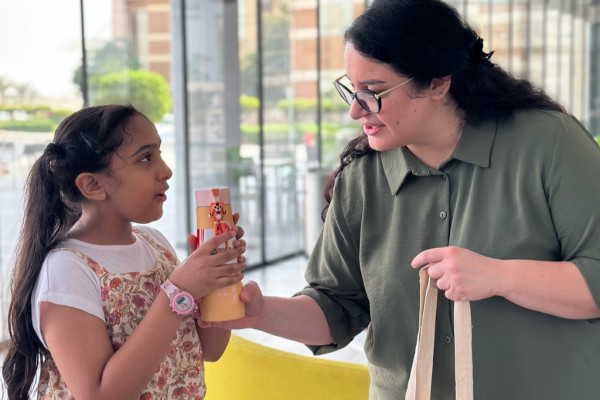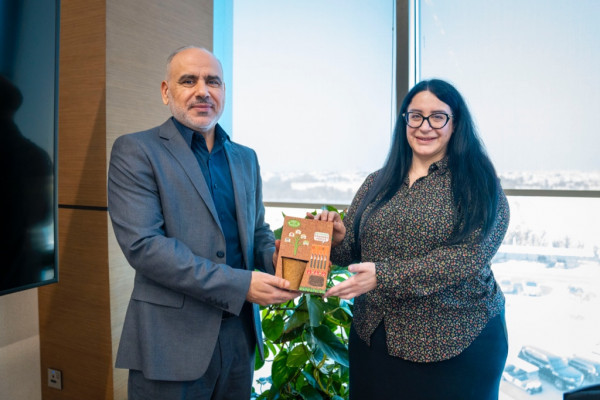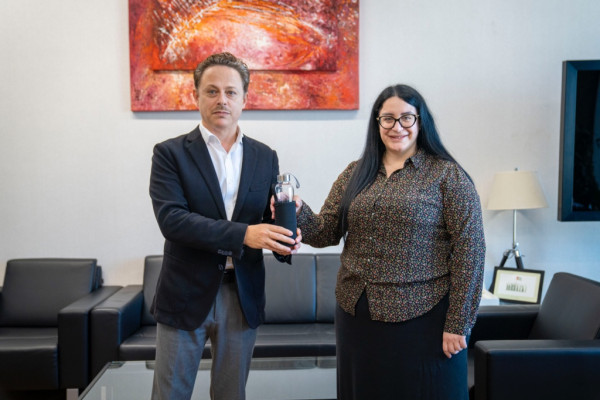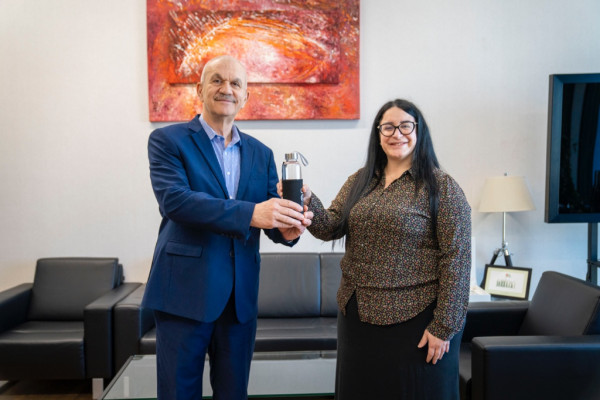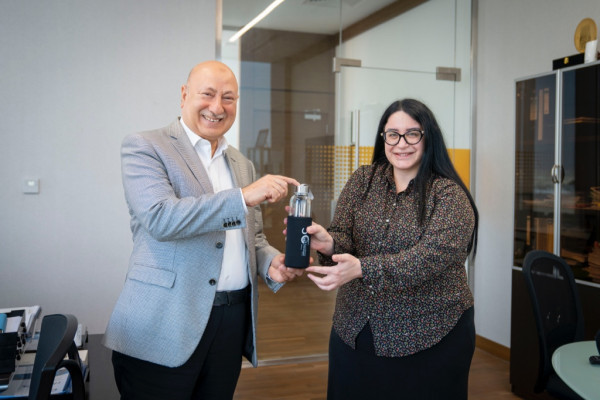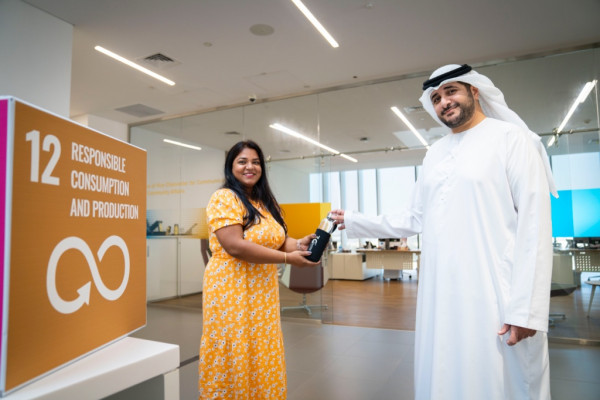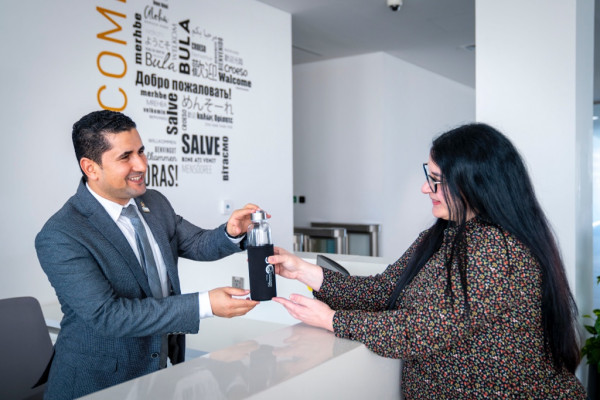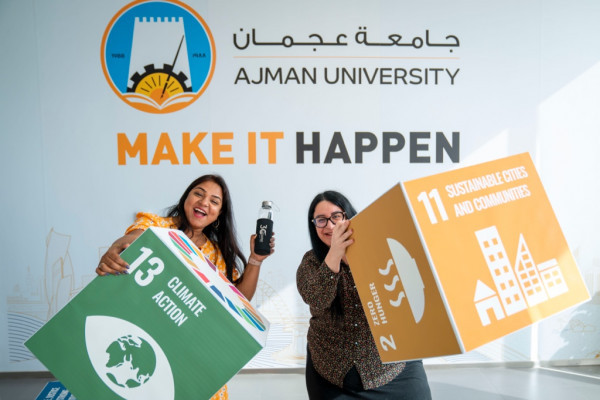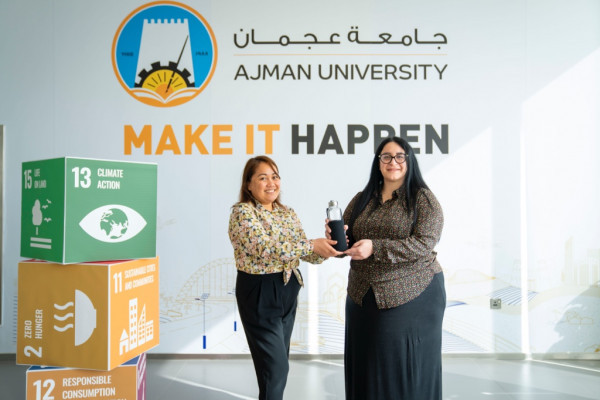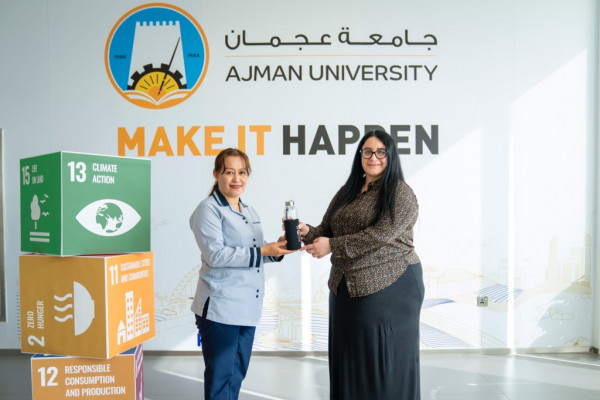"Say No to Plastic" Campaign
In an ambitious stride toward sustainability, Ajman University took a resolute stand against the pervasive use of plastic bottles on campus by launching the "Say No to Plastic" campaign. With environmental responsibility at the core of their efforts, the university initiated this impactful campaign to combat the detrimental impact of plastic waste on our planet.
Under this campaign, sustainable glass bottles became the emblem of change. All staff members, faculty, and support staff, including outsourced personnel, were thoughtfully provided with these eco-friendly alternatives, shifting away from single-use plastic bottles. As part of the initiative, strategically placed water dispensers were deployed across all colleges and staff stations, rendering access to fresh and clean water convenient and hassle-free.
Ajman University's launch of this campaign reflects their commitment to SDG 12: Responsible Consumption and Production. It emphasizes the significance of sustainable consumption practices, reduced waste, and responsible resource usage. For educational institutions seeking to impact the global battle against plastic pollution significantly, the "Say No to Plastic" campaign is a model to follow. By using this proactive approach, Ajman University creates a solid example that inspires and encourages others to follow in its sustainable footsteps.
This campaign highlights the institution's commitment to combating plastic waste and its dedication to instilling responsible consumption habits among its academic community. It symbolizes the positive change that can be achieved when institutions choose to champion the cause of sustainability and make a profound impact.
Reducing Plastic, Empowering Tomorrow’s Generations
As part of the "Say No to Plastic" campaign, the Office of Environmental Health and Safety, supported by current students and alums, extended a warm welcome to children from the local community, providing them with eco-friendly gifts that served both educational and sustainable purposes.
The young attendees received eco-friendly handy water bottles; a thoughtful gift designed to reduce single-use plastic consumption. These water bottles encourage the habit of using reusable containers, thereby promoting clean water and sanitation – an essential component of SDG #6 and #13. In addition to the water bottles, the children were given eco-wooden stationery boxes. These unique writing instruments are not only biodegradable but also contain seeds within them. After use, they can be planted to grow into plants, symbolizing the concept of responsible production and consumption (SDG #11 & #12). Moreover, the children received recycled tote bags. These bags serve multiple purposes, from carrying books to groceries, and their production involves reusing materials, which contributes to waste reduction. In this way, the tote bags reflect the university's dedication to environmental preservation and resource efficiency.
By organizing this event and distributing these eco-friendly gifts, Ajman University's Office of Environmental Health and Safety not only fostered community engagement but also actively advanced the principles of SDG #6, #11, #12 and #13. The program served as a tangible demonstration of the university's commitment to environmental sustainability, responsible consumption, and building a greener, more eco-conscious future – all while involving and educating the local community.

